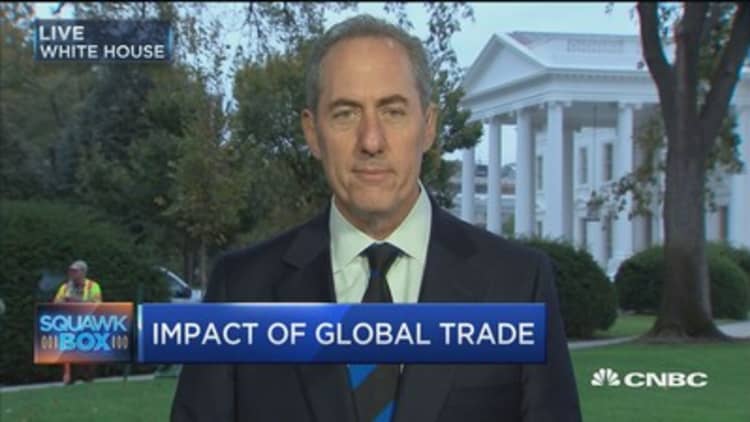
The Trans-Pacific Partnership — opposed by Donald Trump and Hillary Clinton — will have enough votes for ratification by Congress after the election, U.S. Trade Representative Michael Froman told CNBC on Tuesday.
The 12-nation free trade agreement has been a signature economic objective of President Barack Obama and had initial support from Republicans on Capitol Hill, including House Speaker Paul Ryan and Senate Majority Leader Mitch McConnell.
But support for TPP has cooled since the start of the presidential campaign. Trump has railed against it, calling it the worst deal ever, and Clinton, who pushed it when she was secretary of state, said she can't support the final deal.
"If they [House and Senate leaders] bring it forward, I think we can get the votes there," Froman said on "Squawk Box." "This trade agreement eliminates 18,000 taxes on our exports. And members of Congress are starting to see that."
Froman also said the agreement has key industries on its side. "We've got the widest, broadest support across the economy. The technology companies, manufacturers, services companies, [and] virtually the entire agriculture sector [are] all in favor of this agreement."
"The textile industry, for the first time in its history, [is] supporting a trade agreement," he added.
If the U.S. doesn't set the rules of the road in the global economy, China will, he warned. "They are going to move ahead and get access to these markets at our expense. Our market share is actually going to decline in some of these fast-growing, large markets."
China is not part of TPP. In addition to the United States, the signatories are Japan, Malaysia, Vietnam, Singapore, Brunei, Australia, New Zealand, Canada, Mexico, Chile and Peru. The agreement aims to open up key markets, including those in the Asia-Pacific region.
"Trade agreements … [are] how we shape the global economy and make sure that we have level playing field to compete," Froman said.


